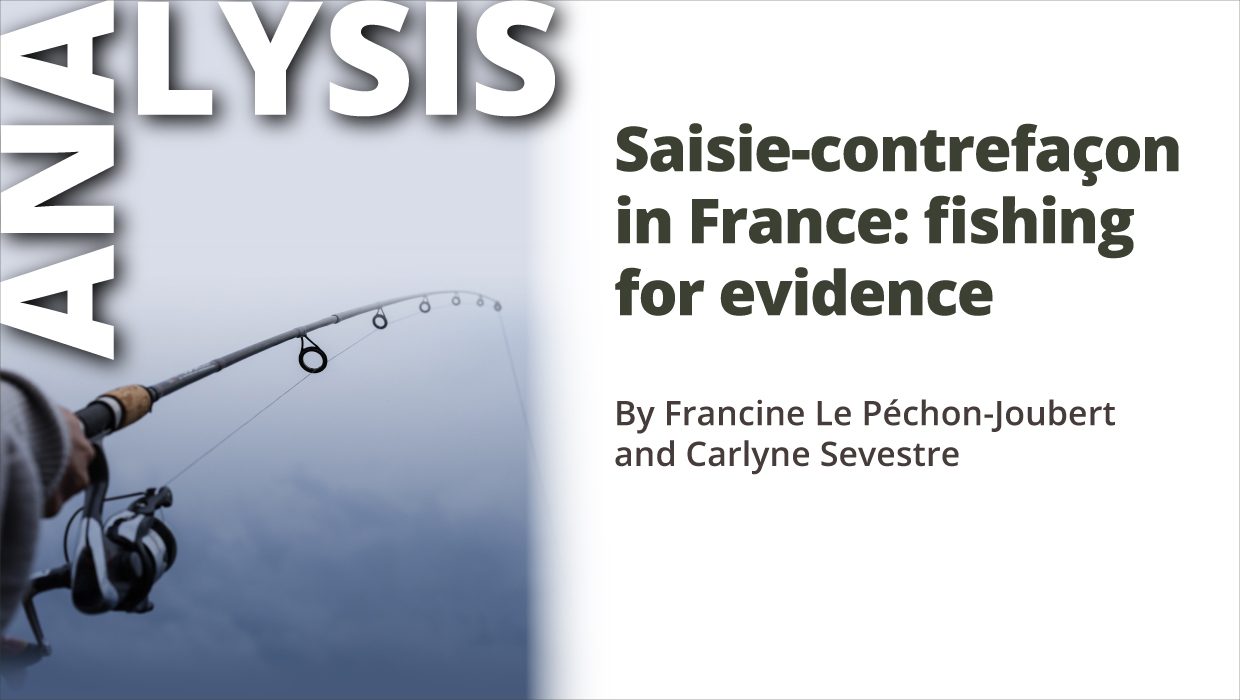
The Court of appeal of Paris, in a decision issued on October 4, 2019, confirmed the possibility to use documents obtained in the course of a counterfeit seizure (“saisies-contrefaçon”) in France as evidence in proceedings abroad.
The company SANOFI proceeded to several counterfeit-seizures in connection with a patented medical device in the offices of the MYLAN companyand those of an importer of the litigious device. MYLAN asked the French Court to prohibit SANOFI from using the collected evidences in a foreign pending matter since it claimed that SANOFI requested the seizure though perfectly aware of the absence of an actual infringement on the French territory and that article 1 bis of the law No 80-538 of July 16, 1980 that modified the law No 68-678 of July 26, 1968 prohibited such use.
This law No 80-538 invoked by MYLAN, also referred to as « blocking law », relates to the communication of documents and information of an economic, commercial, industrial, financial or technical nature to foreign natural or legal persons. According to its article 1 bis:
« Subject to international treaties or agreements and laws and regulations in force, documents or information of an economic, commercial, industrial, financial or technical nature shall not be requested, sought or communicated, in writing, orally or in any other form for the purpose of gathering evidence for or in connection with foreign judicial or administrative proceedings. »
Consequently, application of this law is very restricted by international treaties or agreements, including the European Union law and article 67 of the TFEU on judicial cooperation.
It shall be reminded that this law was first adopted in 1968 to limit communication of information in the transport field. Scope of the law has been extended in 1980 in order to challenge the discovery proceedings that exist under common law system, and particularly in the United-States, thus avoiding French entities from American discovery requests[1]. The Ministry of Justice, answering to a senator’s question on the opportunity for French citizens to initiate an action in the US and provide support elements, clearly specified in 2011 that this “blocking law” aims at challenging pre-trial discovery proceedings which order any party to provide with evidence and consequently can prejudice the interest of French companies[2]. To the best of our knowledge, the law No 80-538 has been applied only once, and not in connection with intellectual property infringements[3].
The Paris Court of appeal refused to order such a blockage.
It results that this law No 80-538 aims to protect French entities from foreign orders but does not impede use in foreign proceedings of evidence lawfully collected in France.
A saisie-contrefaçon appears therefore as a powerful tool to collect evidence in a multijurisdictional matter[4]. Such a saisie-contrefaçon is ordered prior to any litigation by a judge if the claimant wishes to confirm and establish an IP infringement s.he only suspects.
It shall be noted that the saisie cannot be used only overseas. Indeed, the seizing party needs to launch a case on the merits in France within a fixed- and short- delay. If not, the seizure is null and any seized items and documents have to be handed back.
If you have any inquiry, we would be happy to help you further investigate the matter or train your French teams to properly handle a seizure at a company’s French headquarters, particularly in light of the recent trade secret legislation.
[1] Senate Report No 352, p.3 : http://www.senat.fr/rap/1979-1980/i1979_1980_0352.pdf
[2]Question No 19296 by M. Danglot, Answer by Ministry of Justice and Freedoms in official Journal of Senate on October 6, 2011 : https://www.senat.fr/questions/base/2011/qSEQ110719296.html
[3] Cass. Crim., December 12, 2007, No 07-83.228
[4] TGI Paris, ref., October 5, 2018, No 18/071
300 euros de rémunération supplémentaire par invention brevetable
Retrouvez le décryptage de nos avocates Francine Le Péchon Joubert et Tiphaine Gauber...
Juridiction Unifiée des Brevets : révisez impérativement votre stratégie brevet !
C’est une petite révolution. A compter du 1er juin 2023, le titulaire d’un brevet eur...